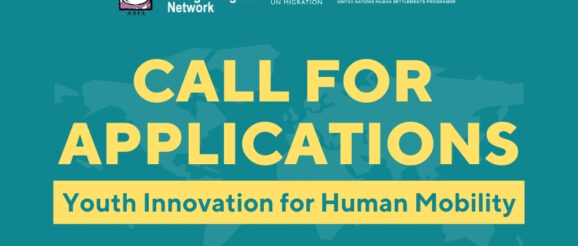Call for Applications: Youth Innovation for Human Mobility Initiative 2021 | Opportunity Desk

Are you a young changemaker in the Asia-Pacific region with an exciting business proposal or an innovative idea to improve the lives of migrants, displaced people and their host communities among the urban poor? Then apply to the Youth Innovation for Human Mobility Initiative 2021.
Program Overview
1 billion people, or about 1 in every 8 persons around the world, live in informal urban areas, where families across generations are often squeezed into tiny, makeshift dwellings without access to running water, adequate sanitation and other essential services. Many are unemployed or in precarious work situations that barely pay for their daily survival. Their communities typically experience weak governance and rule of law, and their voices are rarely considered in urban planning processes. The impact of disasters and climate change is increasingly worsening such challenges.
Most people in informal urban areas live in the sprawling megacities of Asia, with internal and cross-border migrants, displaced people, youth and women often over-represented, contributing to their exclusion. The marginalization of migrants and displaced people is frequently compounded by factors related to immigration status or municipal registrations, access to information and social support networks, or discrimination and xenophobia.
The UNDP Human Mobility Team and Youth Co:Lab, an initiative co-led by UNDP and Citi Foundation, are partnering with the International Organisation for Migration (IOM), the UN Human Settlements Program (UN-Habitat), the Asia Pacific Refugee Rights Network (APRRN), and Migrant Forum Asia (MFA) for the first Youth Innovation for Human Mobility initiative in the Asia-Pacific region.
Benefits
Eligibility
Open to teams with proposals that target a range of challenges experienced by migrants, displaced people and their host communities among the urban poor, namely:
Assessment Criteria
Applications will be assessed based on the extent to which they:
